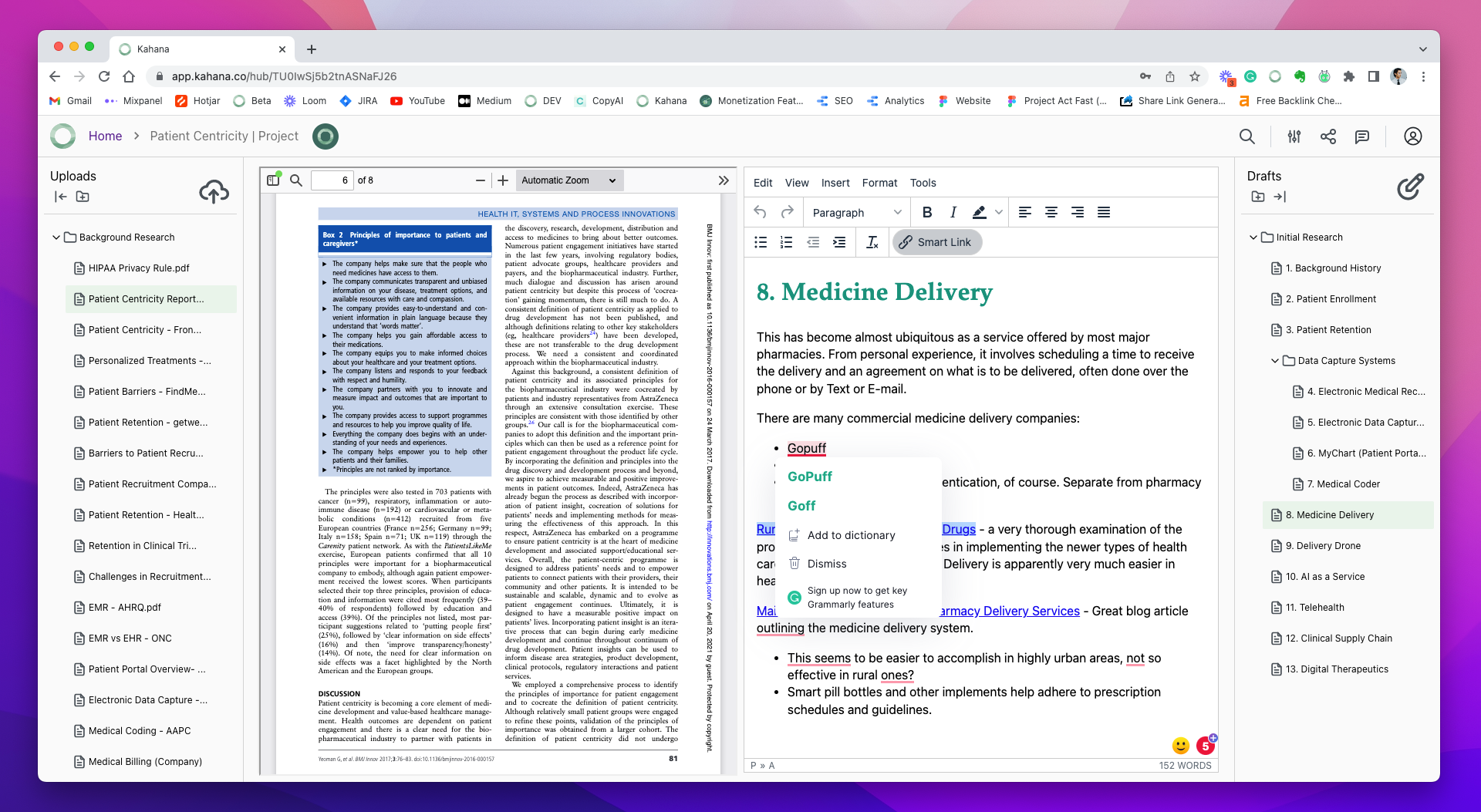How to Organize Research: Notes, PDF Files, & Documents

Topics covered ✅
- How to organize research papers and PDF files
- How to organize research projects
- Organizing research notes
- Organizing research notes software
- Organizing research tools
- Research organizer template
- How to organize research material
If you are a busy college student, creator, or blogger your life can get really cluttered. But the messiness in our lives can extend much farther than just a dorm room or office. As active researchers, we can often struggle to organize research in the form of copious amounts of articles, journals, academic writings, thesis, rough drafts, etc.
It gets pretty exhausting.
But where do you even begin?
What's the best way to organize research?
We believe we have created the best recipe for organizing your research and you will never go back to your old ways.
1. Note-taking and Mind mapping – How to Hack Your Mind
First, start by organizing your notes into categories. You can do this on a sticky note or on a mind map.
Even though you may feel like a middle school kid using colorful sticky paper, sticky notes are proven to be one of the most effective ways to organize research.
You'll want to do some research before you begin writing.
Use sticky notes to organize the information you find, and write down any thoughts or ideas that come up as you read or listen.
Also, sticky notes are great if you want to jot down quick notes during a lecture or discussion with friends about the topic at hand.
You can write down important points and make connections between them on sticky notes.
An option similar to this is creating a mind map.
If you are a very visual learner, this style of research may appeal to you because you can visually see where you will be taking this research into categories and subcategories.
Plus it’s fun making them!
2. The Hard Part – Research & Writing
You should be familiar with the different types of sources that you can use when writing a research paper.
5 Examples of Sources
Here are a few examples of sources:
- Primary sources (original documents like letters or speeches)
- Secondary sources (articles, books, etc.)
- Audio files (podcasts, interviews, etc.)
- Online databases (Academic Search Complete, JSTOR, LexisNexis)
- Tertiary sources (reviews of other people's research and analysis of your topics
Bibliographies
When conducting research for your essay, be sure to use academic sources only!
Academic sources are those written by experts in their field who have been published in peer-reviewed journals or books and are therefore considered credible resources for learning more about any given topic.
Academic sources will always include citations at the end of each paragraph (or chapter) so that readers can easily identify where they can go if they'd like to learn more about the topic being discussed in each section of the text.
You can use secondary sources for information about your topic, but make sure that they are academically-reputable sources.
Primary sources are also great for finding information, but they provide only one side of the story and should be used with caution.
Overall, try to use a variety of sources as this will strengthen the argument you are defending.
We recommend putting a lot of emphasis on option five (tertiary sources) because it is something that we were not previously familiar with and we believe it should become more known as it is super helpful.
Tertiary sources are those that have been compiled by other people, such as academic journals and published books.
They can be great resources for getting more background information on a topic, but they aren't original works of scholarship—so be sure to cite them accordingly!
Quick Bibliographies
As you organize research, there’s no need to get bogged down in how you structure or create your bibliography.
For starters, here’s a simple list of tools for quick bibliographies:
3. Putting Your Thoughts On Paper
One of the hardest parts is the beginning of the writing process. You should always keep in mind your thesis statement when you write.
It's easy to get carried away with details and forget what you're trying to say—but if you can keep your thesis statement in mind, it will help you stay focused on the main point of your work.
The writing process is a great way to get started with your research because it helps you organize your thoughts before writing them down into sentences and paragraphs.
You'll be able to take notes faster because everything is already written down for you!
Moving on, an excellent strategy that works best for me is just word vomiting onto a page to get a basis of everything you want to say, and then after that is done, organize and clean up what was written.
This is especially useful if you have collected all the data and you just don't know how to put your thoughts into actual words.

Claim My Free Research Organizer Template
This free research organizer template comes pre-built with folders, subfolders, aesthetic formatting, and much more.
4. The Finishing Touches
If there is anything you should take away from this, it’s to use a reference manager.
Reference managers help ensure that all your citations are correct and up-to-date.
When choosing one, make sure it's compatible with whatever citation style is required by your instructor or institution.
Research doesn't have to be something that you dread or bores you out of your mind.
Being organized can make this process fun and exciting.
So now it's time to put on your thinking cap and get to work.

Talk with a Kahana representative
Fill out your information and a Kahana team representative will reach out to you. Have a simple question? Search our library of articles
